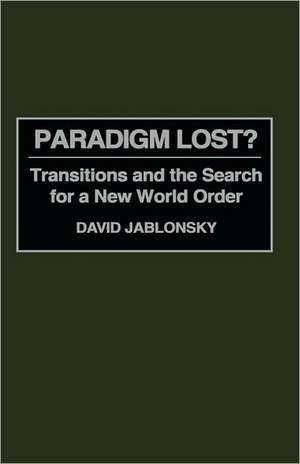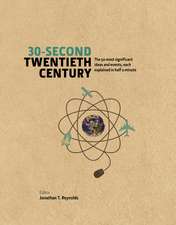Paradigm Lost?: Transitions and the Search for a New World Order
Autor David Jablonskyen Limba Engleză Hardback – 23 mar 1995 – vârsta până la 17 ani
Preț: 343.55 lei
Preț vechi: 475.05 lei
-28% Nou
Puncte Express: 515
Preț estimativ în valută:
65.75€ • 67.92$ • 54.72£
65.75€ • 67.92$ • 54.72£
Carte tipărită la comandă
Livrare economică 26 martie-09 aprilie
Preluare comenzi: 021 569.72.76
Specificații
ISBN-13: 9780275950330
ISBN-10: 0275950336
Pagini: 144
Dimensiuni: 140 x 216 x 13 mm
Greutate: 0.33 kg
Ediția:New.
Editura: Bloomsbury Publishing
Colecția Praeger
Locul publicării:New York, United States
ISBN-10: 0275950336
Pagini: 144
Dimensiuni: 140 x 216 x 13 mm
Greutate: 0.33 kg
Ediția:New.
Editura: Bloomsbury Publishing
Colecția Praeger
Locul publicării:New York, United States
Notă biografică
DAVID JABLONSKY is Professor of National Security Affairs at the U.S. Army War College. He has held the Elihu Root Chair of Strategy and currently occupies the General George C. Marshall Chair of Military Studies. He is the author of numerous monographs and articles as well as several books.
Cuprins
IntroductionThe Enduring ParadigmThe Subordinate ParadigmsBrother Can You Paradigm?ConclusionEndnotesBibliographical Essay












